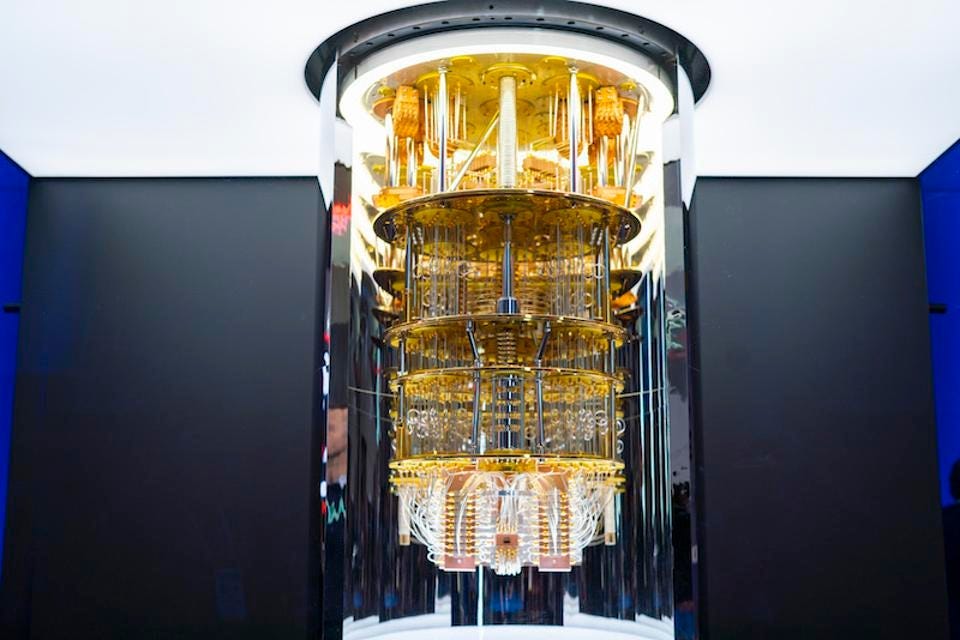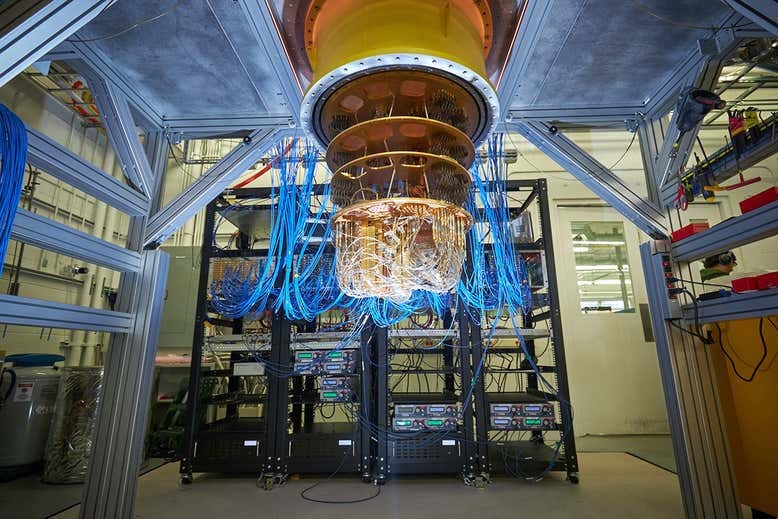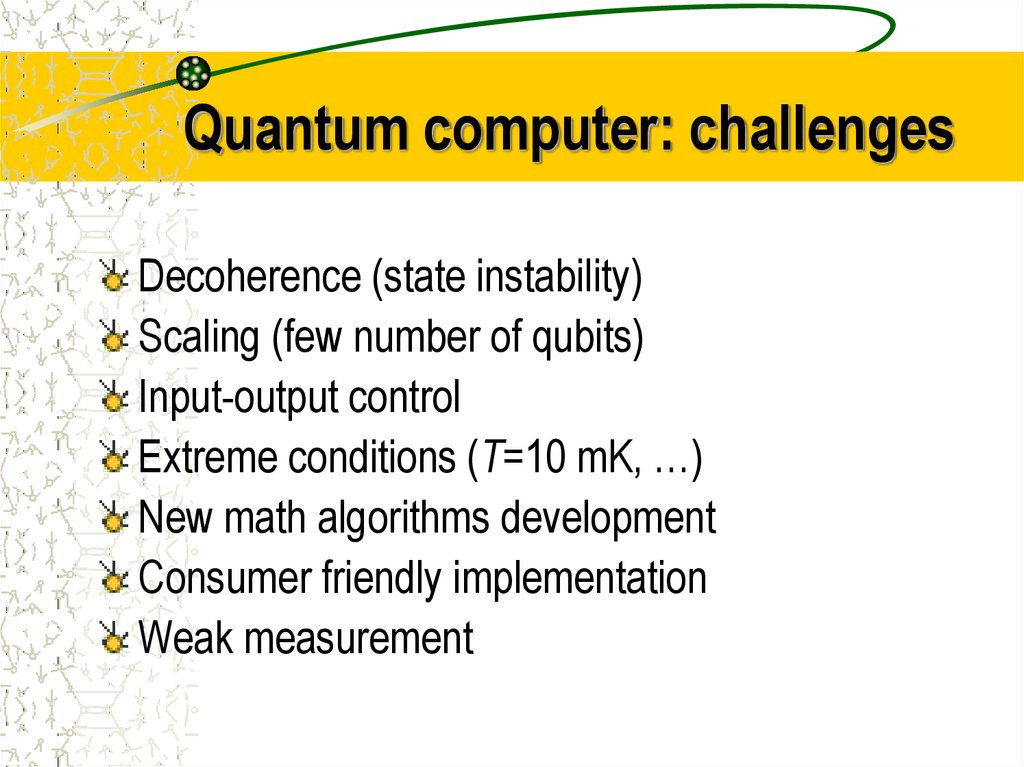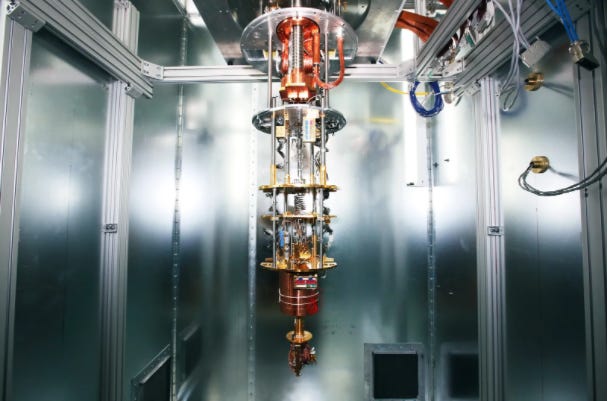What Are Quantum Computers?
Using the laws of Quantum Physics to produce a new generation of Computational Machines
Technology, like art, is a soaring exercise of the human imagination. - Daniel Bell
Greetings, fellow Bohron
Fifty years ago, smartphones would have been the ultimate computing wizard. Just as classical computers were almost unimaginable to the previous generations, we are now looking forward to the new generation of Quantum Computing.

The country which can control the future of quantum technology holds the potential to become an “Information Superpower” due to which many developed & developing countries are in the race of mastering Quantum Technology.
Computing is any activity that uses computers to manage, process and communicate information while Quantum Computing is the area of study i.e focused on creating.
Quantum computing is based on principles of quantum theory which describes the nature & behaviour of matter & energy on the atomic and sub-atomic levels.
The development of quantum computers is a major leap forward in computing because of their enormous computing power. For example, a quantum computer requires 3.5 million fewer steps than a conventional machine.
Working

A classical computer performs operations using bits which can be either O or 1. Quantum computing uses qubits which can be O and 1 both at the same time.
Qubits are the undefined properties of an object such as the spin of an electron or the polarization of a photon
This property of possessing multiple characteristics makes superior computing power. Elementary particles such as a single photon, nucleus, or electron can be used as a qubit.

Quantum computers are based on 2 key principles of Quantum physics:-
Superposition
Each qubit can represent both 0 & 1 at the same time. This may defy common sense but this is reality. This is how nature plays at sub-atomic levels.
Entanglement
Qubits in a state of superposition can be correlated with each other in such a way that they remain connected even when separated by vast distances. This allows qubits to interact with each other & allow them to perform calculations exponentially faster than supercomputers.
Applications
Artificial Intelligence (AI): Since there is an enormous amount of data in the new world age, in the form of text, videos so we need powerful computers for AI to process petabytes of these unanalyzed data in the field of medical research, financial markets, consumer behaviour, etc.
Computational Chemistry: Quantum computers can do Precision Modelling of complex molecular interactions and also find configurations for chemical reactions. For instance, it can find new materials that can achieve superconductivity at room temperature, find a catalyst that can increase the efficiency of carbon sequestration.
Financial services: It can be used in complex financial calculation & risk management in the financial industry by isolating key global risk factors.
Cryptography: Quantum computers can perform the purpose of online security more efficiently than digital computers.
Weather Forecasting: Conventional computers would take a longer time to depict actual weather conditions while weather possesses hidden wave nature which can be better analyzed by quantum computers.
Climate modelling: This can help to build better climate insight into which humans are influencing the environment. That helps to build our estimates of future global warming.
Logistics & Scheduling: It can make significant strides in the logistic sector, for instance, to figure out quantum algorithms to adjust routes to provide last mile connectivity with minimal cost and to maximize the output with minimal cost in the industry.
Stock Exchange: It can predict pro boom and depression conditions in the stock market.
Challenges

Expensive: Most small businesses will not be able to afford such expensive machines.
Technological Availability: Technology required to implement it is yet the not available reason is that essential element of quantum computing that is qubits is collapsed in the discrete state as soon as affected by the environment.
Vulnerability: With Quantum Computing every computer on this planet becomes vulnerable even nuclear codes can be hacked.
We need to develop tons of new quantum algorithms for the functioning of quantum Computers.
Experience: We don’t have enough experience to operate quantum computers.
Unstable: Any difference in temperature, noise, vibration, electrical fluctuation can disturb qubits operations.
Cooling: To stabilize certain qubits we need to maintain a very low temperature of -273 degrees.
Future

A new term Quantum supremacy was coined in 2011 by John Preskill that refers to a problem-solving process by quantum computers that can not be solved by a normal computer in a normal lifetime.
Google claims that they have achieved supremacy through their processor that takes 3 minutes and 20 seconds to perform a calculation, that an advanced computer will take 10,000 years approximately to perform the same task.
Various developments at national and international levels are working to explore this technology further. In India, there is a lack of talent, resources, funds, research & development, high tech institutes to develop this technology further.
We need to set up a target as India’s top national priority to develop Quantum Computing capacities that need collaborative effort with the other global partners. US, China & Canada are going to leap forward in this direction.




Nice article, What type of calculations can present Quantum Computers do ? Any examples?